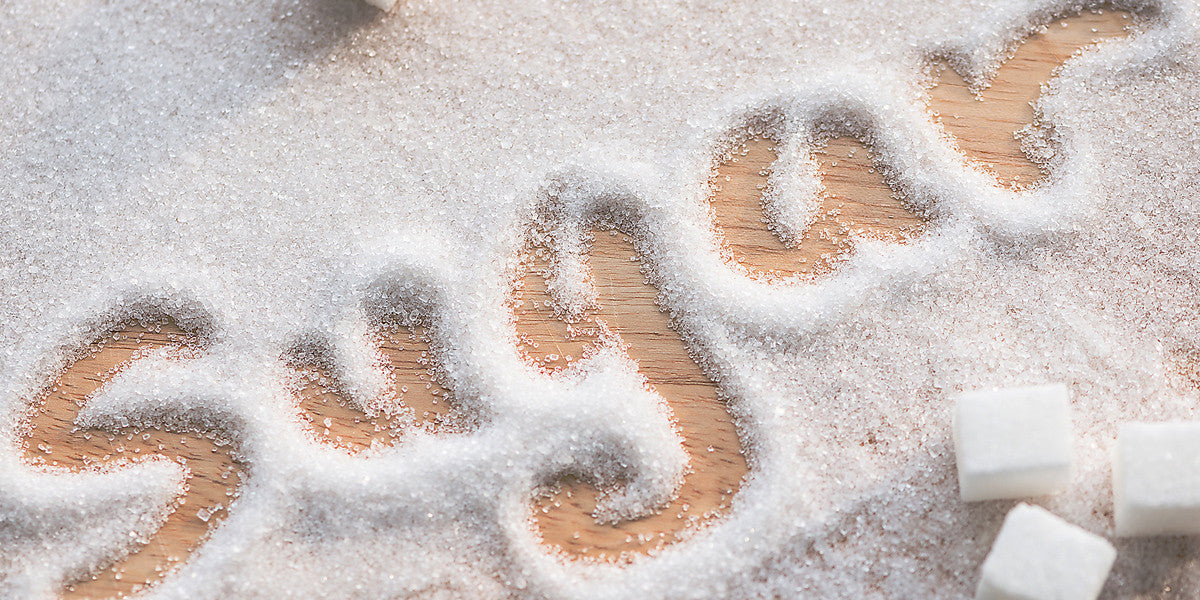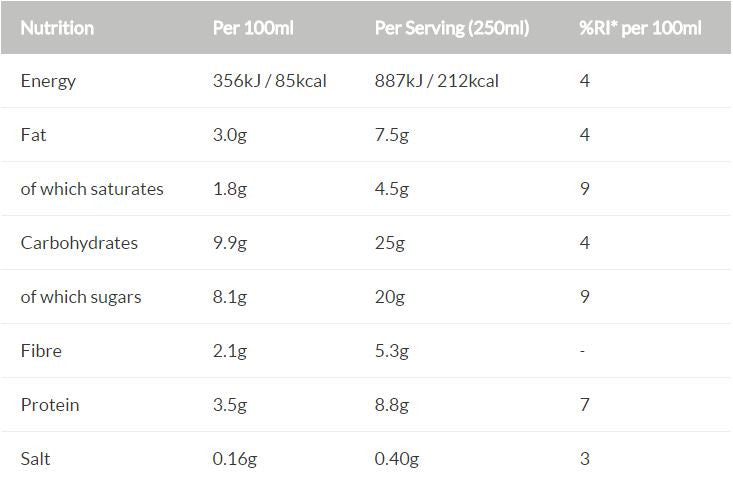This will change everything you thought you knew about sugar!

We all know that eating too much sugar is bad for us. But do most of us realise just how much we are consuming? And do we truly understand the dangers of overconsumption?
What can too much sugar do?
Public Health England states there are two clear reasons we need to be concerned about our sugar intake: obesity and tooth decay. 64% of adults in the UK are classed as being overweight or obese. Obesity caused by a high sugar intake and excess calories can lead to further health issues such as type 2 diabetes, heart disease, stroke, and some types of cancer. It can also lead to psychological issues such as bullying, low self-esteem, and even depression.
What happens when we ingest sugar?
Put in very simple terms, when we ingest anything high in artificial sugars we experience a sugar rush. Insulin is then released to control blood sugar levels. The temporary spike in energy experienced is usually promptly followed by a sugar crash, which is where cravings develop and the ‘just one more’ temptations defeat us.
Whilst we are working towards satisfying these overwhelming cravings, excess sugar is being stored in the liver. Too much of this can cause the liver to be overloaded and forced to expand to try and compensate. Once it has reached its maximum capacity, the liver then sends out any excess sugar to be converted into fatty acids, which are stored as fat in less active parts of the body.
Is a sugar rush as addictive as drugs?
Dopamine is the body's 'reward' chemical which releases energy and motivation when your body needs it most. Dopamine is to thank for those 'cravings' you feel and can be an almost overwhelming feeling when enough dopamine is released. When you consume sugar, huge amounts of dopamine are released into the body, which explains why it can be so difficult to stop eating sweet things once you start. Other substances which release huge amounts of dopamine are Class A drugs such as cocaine, which is why it is said that sugar is as addictive as drugs.
How can we slim our sugar intake?
It is vital that you always read the label when purchasing a new food. There are so many foods and drinks out there that contain a lot more sugar than you realise, even in foods that claim to be 'healthy'. The best way to lower your sugar intake is to check how much sugar is in what you are eating and either opt for a lower sugar version or cut it out completely. So for example here we have Tomato Soup:
Nowadays, nearly everything has a high amount of sugar in it. Let's take this tomato soup for example. You would expect this to be a very healthy, low-calorie meal.. right? Let's check the label.

This tomato and basil soup from Waitrose contains 11.1g of sugar per serving. The recommended serving by the manufacturer is half a pot, so if you consume the entire pot (which you probably would if you didn't read the label first) you are actually consuming 22.2g of sugar which is more than an average-sized Snickers bar which contains 20g of sugar!
Sugar In Meal Replacements
A very popular way of losing weight these days is consuming meal replacements, whether they are shakes, drinks, or bars. However, meal replacements aren't always sold by weight loss companies and are not always marketed as being for weight loss. Brands like Weetabix are now marketing meal replacements with their new Weetabix On The Go which is heavily marketed towards people who don't have enough time in the morning to eat a proper, nutritious breakfast. These products are sold as being a 'complete' breakfast with lots of fibre and protein as the main selling points, but let's take a closer look.
This is the nutritional information for the Weetabix On The Go Vanilla flavour drink. As you can see, one serving (one bottle) contains 20g of sugar. Again, as much as a chocolate bar! So, you might as well be eating a chocolate bar for breakfast, right? When you actually look at the ingredients of this product, they are essentially just milk, cream, sugar, and wheat derivatives. Not exactly a wholesome, healthy breakfast!



